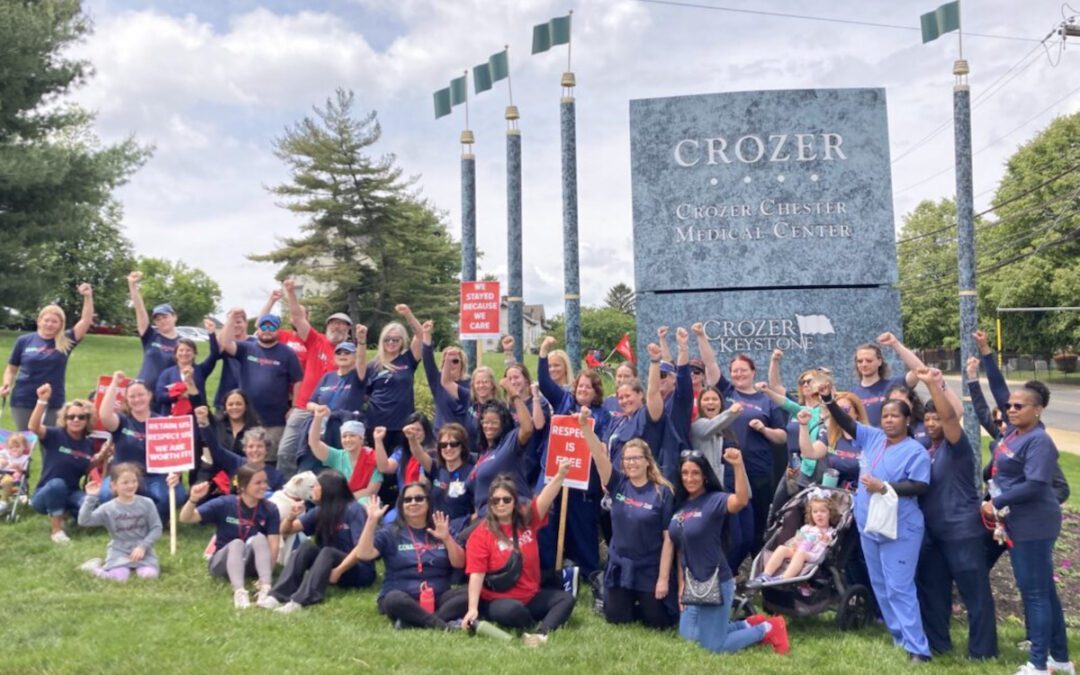
Gov. Josh Shapiro speaking before President Joe Biden at the Scranton Cultural Center at the Masonic Temple in Scranton on April 16, 2024. (Photo: Sean Kitchen)
HARRISBURG, Pa. (AP) — Gov. Josh Shapiro and his top human services official said Wednesday that the administration has a plan to end a waiting list of thousands of families who are considered to be in dire need of help for an intellectually disabled adult relative.
Shapiro and Human Services Secretary Val Arkoosh said it is vitally important to the plan for lawmakers to approve a funding increase for state-subsidized services, such as in private homes or group homes.
Shapiro’s administration considers the funding increase a first step that is intended to boost the salaries of employees who, through nonprofit service agencies, work with the intellectually disabled.
“Over the next several years, if this budget passes, there will be a plan in place to finally end that waiting list,” Arkoosh told a discussion group at BARC Developmental Services in Warminster. “It’s a big deal.”
Pennsylvania has maintained a growing waiting list of people seeking such services for decades, as have the vast majority of states.
Roughly 500,000 people with developmental or intellectual disabilities are waiting for services in 38 states, according to a 2023 survey by KFF, a health policy research group. Most people on those lists live in states that don’t screen for eligibility before adding them to a list.
Federal law doesn’t require states to provide home and community-based services, and what states cover varies. In Pennsylvania, the state uses its own dollars, plus federal matching dollars, to cover home and community-based services for intellectually disabled adults.
However, the state’s money hasn’t met the demand, and in Pennsylvania, roughly 4,500 families with an intellectually disabled adult relative are on what’s called an emergency waiting list for help, the state Department of Human Services said.
“These are the critical of the critical,” said Sherri Landis, executive director of The Arc of Pennsylvania, which advocates for people with intellectual and developmental disabilities.
In many cases, parents on the emergency waiting list have grown old waiting for help for their adult child whom they are increasingly struggling to look after.
One major problem is the difficulty in finding and hiring people to take jobs as care workers. That problem has grown significantly as the COVID-19 pandemic increased stress across the spectrum of workers in health care and direct care disciplines.
Shapiro’s budget proposal includes an extra $216 million in state aid, or 12% more, to boost worker salaries and help agencies fill open positions. Federal matching dollars brings the total to about $480 million.
The funding request is part of a $48.3 billion budget that Shapiro is proposing to lawmakers for the 2024-25 fiscal year beginning July 1.
BARC’s executive director, Mary Sautter, told Shapiro that her agency has a worker vacancy rate of 48%, forcing current employees to work overtime or extra shifts.
“There is a way to fix that and we’ve known that there’s been a way to fix that for a long time, which is to pay people more and be able to hire more people and be able to fill more slots with people who need support and assistance,” Shapiro told the discussion group at BARC.
Shapiro’s administration envisions several years of increased funding that will eventually lead to expanding the number of people who can be served and eliminate the emergency waiting list.
Shapiro’s 2024-25 proposal is about half the amount that advocates say is needed to fix a system beset by staffing shortages and low pay. But they also say this year’s funding proposal, plus a multiyear commitment to eliminate the waiting list, would be an unprecedented injection of money into the system.
“This is the entire boat coming to rescue a system that is really struggling,” Landis said. “And people deserve services.”
Support Our Cause
Thank you for taking the time to read our work. Before you go, we hope you'll consider supporting our values-driven journalism, which has always strived to make clear what's really at stake for Pennsylvanians and our future.
Since day one, our goal here at The Keystone has always been to empower people across the commonwealth with fact-based news and information. We believe that when people are armed with knowledge about what's happening in their local, state, and federal governments—including who is working on their behalf and who is actively trying to block efforts aimed at improving the daily lives of Pennsylvania families—they will be inspired to become civically engaged.


Two hospitals to close after Pa. officials provided $40 million to help company find a buyer
Prospect Medical Holdings, which filed for bankruptcy in January, will shutter pair of Delaware County facilities. A California for-profit health...

Opinion: I’m chronically ill, but can hold a job at Sheetz thanks to Medicaid. Cuts would put me at risk.
Beaver resident Carly Morton writes about how she relies on Medicaid to survive and work, and highlights the potentially devastating consequences of...

Deal struck to keep Pa. hospital system open – for now
If a pair of its hospitals close, the state’s fifth most populous county would only have two left. An agreement has been made to keep a pair of...

One of Pa.’s most populated counties could be down to two hospitals soon
Reports surfaced Thursday that a Delaware County hospital system could close two hospitals. Prospect Medical Holdings Inc. might close two hospitals...

PA medicaid abortion exclusion deemed “presumptively unconstitutional”
Though access to abortion is still legal in Pennsylvania, it is highly restricted for Medicaid recipients, prompting several reproductive healthcare...





